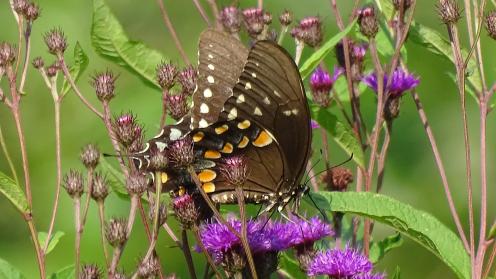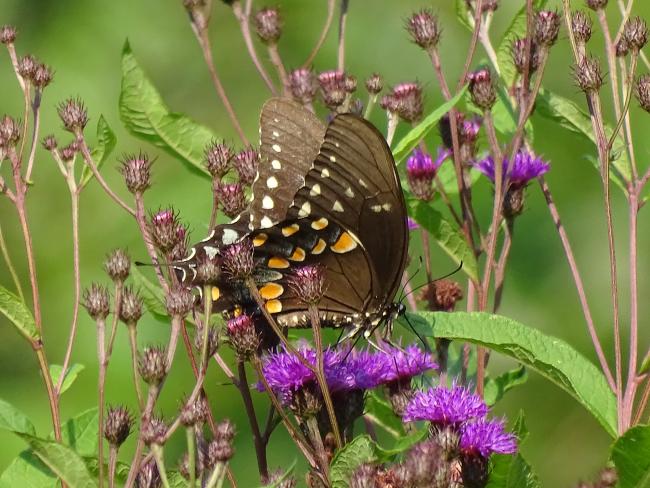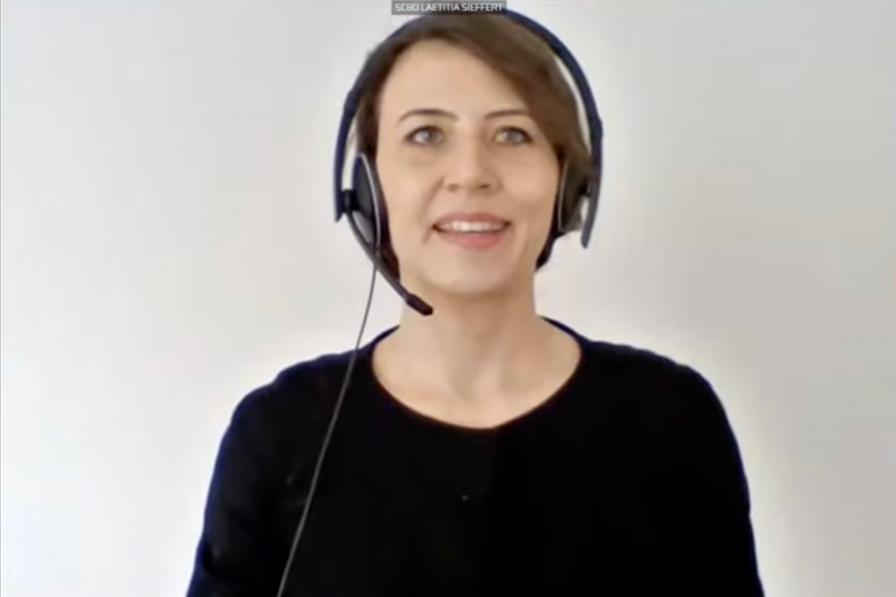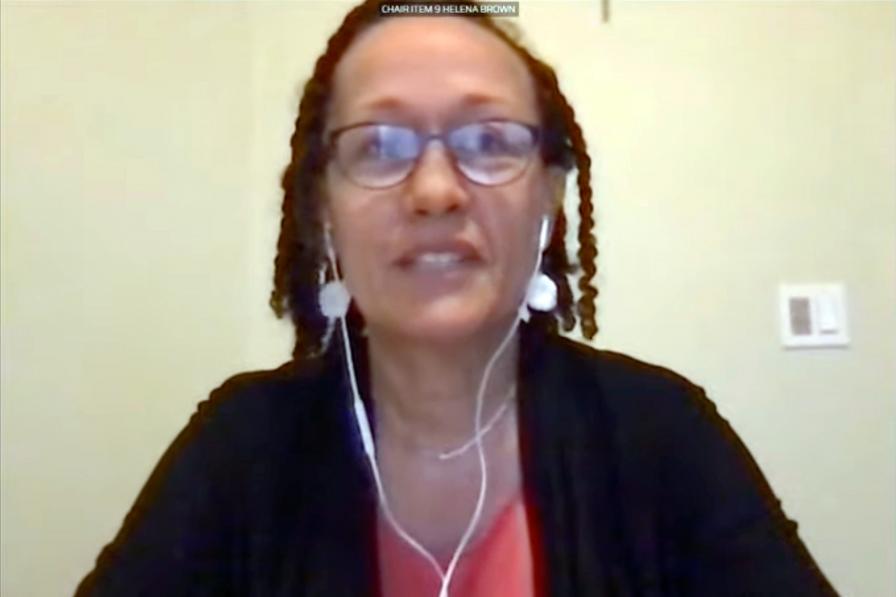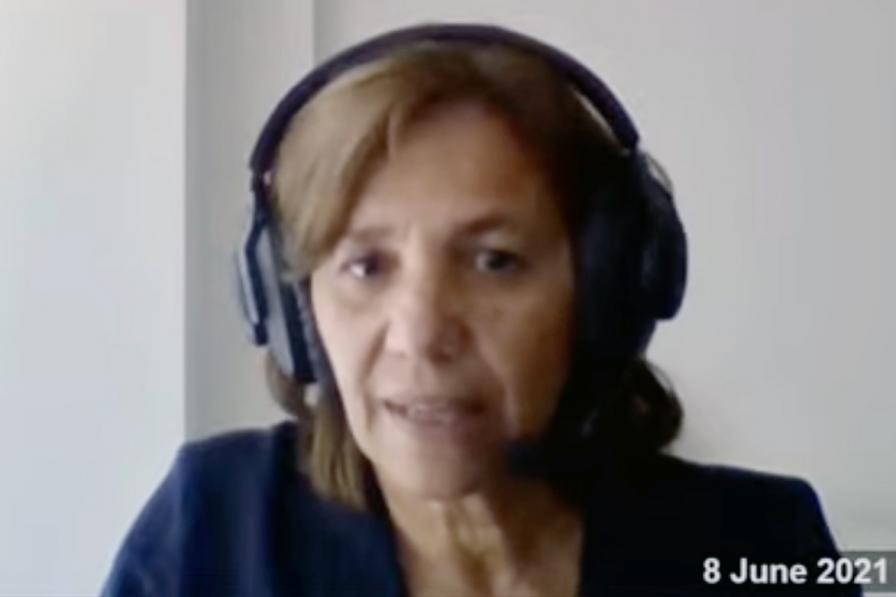On Tuesday, the Subsidiary Body on Scientific, Technical and Technological Advice (SBSTTA-24) of the Convention on Biological Diversity (CBD) convened its eighth plenary meeting to prepare for the 15th session of the Conference of the Parties (COP15) and the adoption of the post-2020 global biodiversity framework (GBF).
During the session, delegates held their first discussions on the agenda item on biodiversity and health. They also engaged in text-based negotiations on conference room papers (CRPs) on the review of the International Initiative for the Conservation and Sustainable Use of Soil Biodiversity and its updated Plan of Action, as well as synthetic biology.
Biodiversity and Health
BSTTA Bureau member Helena Brown (Antigua and Barbuda) chaired the discussions on biodiversity and health, reminding parties there would not be time to develop and discuss a CRP on this agenda item. Several parties recognized the interlinkages between biodiversity and health, including between biodiversity loss and the spread of zoonotic diseases.
Many welcomed and supported the proposed recommendation and the draft global action plan for biodiversity and health, especially highlighting the importance of the One Health Approach. A number of parties asked for its elements to be better reflected and integrated into the GBF, and stressed the importance of ensuring the mainstreaming of biodiversity across health sectors. Regarding global health, a number of parties highlighted the varying capacities of countries to respond to health emergencies, as witnessed in the unequal distribution of COVID-19 vaccines. In this regard, they asked for more reference to be made to access and benefit sharing, and for better support to be provided to least developed countries, small island developing states and countries with economies in transition to ensure adequate and equitable implementation of the action plan.
Some observers and international organizations highlighted links between this agenda item, and ongoing work at the World Health Organization (WHO), UN Food and Agriculture Organisation (FAO) and the UN Environment Programme (UNEP). A number of observers also stressed the importance of ensuring the participation of experts, including traditional knowledge holders, in decision-making processes on public health policy and biodiversity conservation. They also highlighted that Indigenous peoples, local communities, women, and youth remain some of the most vulnerable to the effects of environmental harm and health crises.
Biodiversity and Agriculture
Delegates concluded discussions of the CRP on the review of the International Initiative for the Conservation and Sustainable Use of Soil Biodiversity and its updated Plan of Action (CBD/SBSTTA/24/CRP.5). In regard to the annexed updated Plan of Action, SBSTTA Chair Hesiquio Benitez urged delegates to approve it, pointing to the development process, peer review, and integration of comments made by parties in previous readings. Still, a number of parties requested an opportunity to discuss it in more detail and make comments, so the plan was bracketed.
Synthetic Biology
Delegates heard the reports of the friends of the chair group facilitated by SBSTTA Bureau Member Helena Brown on the topic of whether synthetic biology constituted a new and emerging issue and of the contact group on synthetic biology. The latter, co-chaired by Ntakadzeni Tshidada (South Africa) and Werner Schenkel (Germany), met twice and addressed a number of substantive issues.
While they managed to make progress especially on the horizon-scanning process, they were not able to reach consensus on all issues. SBSTTA Chair Hesiquio Benitez then asked delegates to focus on finding solutions for bracketed provisions in the CRP on synthetic biology (CBD/SBSTTA/24/CRP.8). In talks, parties mainly discussed references to: the relevance of Digital Sequencing Information (DSI); whether synthetic biology is a new and emerging issue; and the timing of horizon scanning. Discussions will continue on Wednesday.
To receive continuing coverage of this event delivered to your inbox, subscribe to the ENB Update newsletter.
